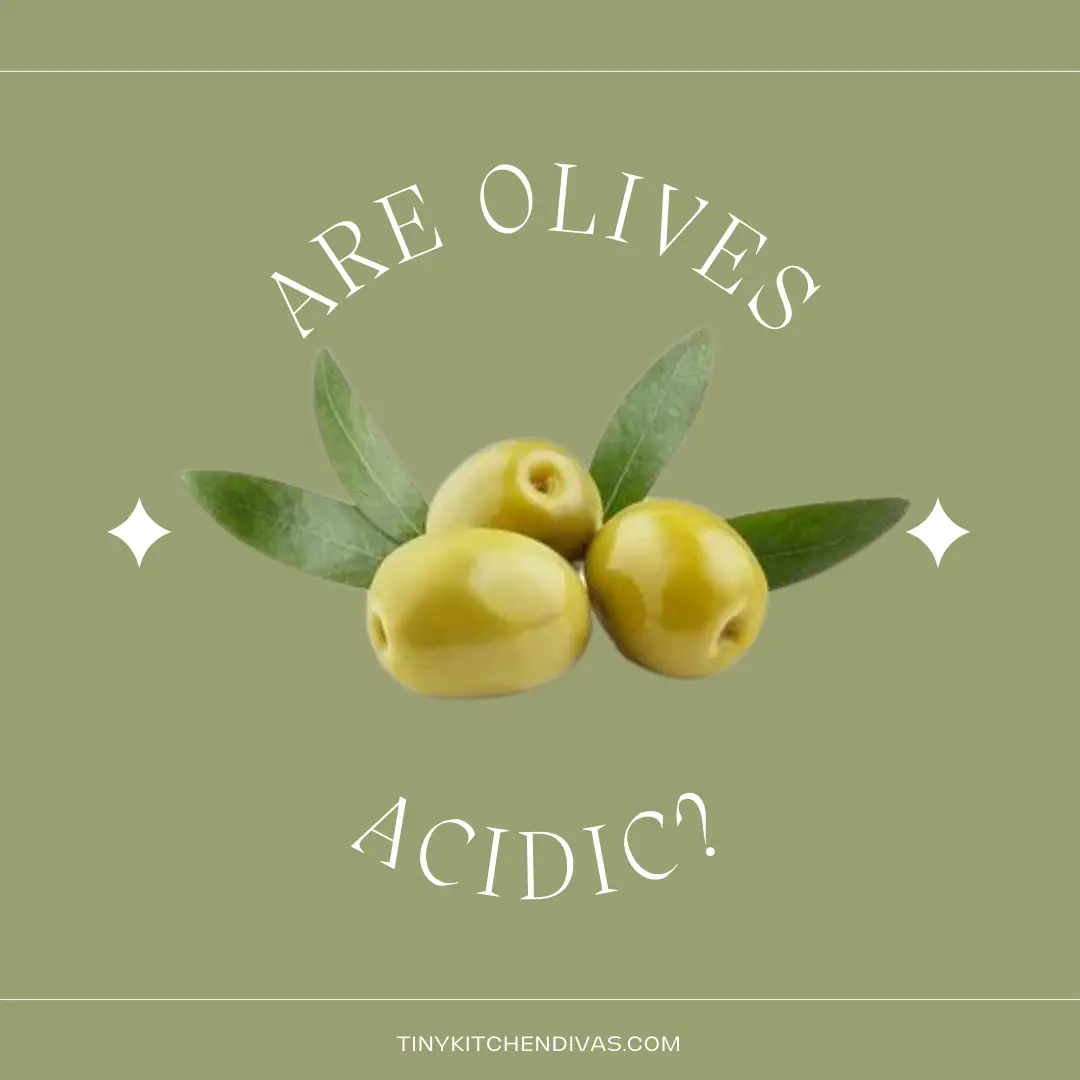Olives, also known as drupes or stone fruits, are rich in antioxidants and healthy fats. Antioxidants protect the body’s cells from oxidative damage caused due to free radicals, whereas healthy fats help lower the body’s ‘bad’ cholesterol levels. Hence, olives are deemed to be very healthy and are often enjoyed greatly in salads and sandwiches.
Now, ‘are olives acidic’ is a common question. This depends on the type of olives we are talking about. While some olives have a neutral pH value, most have a pH lower than that of water, which indicates that they are acidic.
Nutritional value of olives
Olives contain 80% water and are rich in powerful antioxidants.
100 grams of ripe, canned olives have the following nutritional values:
- Carbohydrates: 6.3 grams
- Proteins: 0.8 grams
- Fats: 10.7 grams
- Calories: 115
As you can see, olives are low in carbs and high in fats. These fats are monounsaturated fatty acids (MUFA) and polyunsaturated fats (PUFA). They are nutrient-dense as they are enriched with vitamin E, iron, copper, sodium, and calcium.
What is the pH of olives?
According to a study titled “Physicochemical, microbiological, and organoleptic profiles of Greek table olives from retail outlets,” published in the Journal of Food Protection, the average pH values of olives range from 3.96 to 4.31. A pH of less than 7 indicates that the food is high in acidic content. Thus, olives are considered to be acidic in nature. Olives when fermented become even more acidic.
Important health benefits of Olives
Olives are linked with providing numerous health benefits due to their high nutritional status. These are as follows:
- According to a study titled “The phenolic compounds of olive oil: structure, biological activity and beneficial effects on human health,” published in the Nutrition Research Reviews, olives might help prevent atherosclerosis and cancer because of their high antioxidant property.
- Olives also contain healthy fats that help lower the low-density lipoprotein (LDL) or bad cholesterol, thus preventing atherogenesis.
- Some studies, including “The effect of olive oil on osteoporosis prevention” published in The International Journal of Food Sciences and Nutrition, suggest that osteoporosis can be prevented by having olives. Osteoporosis is a bone disorder in which the bones become soft and weak, increasing the chances of fractures.
Who should not consume olives?
As olives are acidic, it would be best for vulnerable groups to avoid consuming them. The vulnerable population includes people with Gastroesophageal Reflux Disease (GERD) or chronic heartburn. There haven’t been enough studies done that strongly suggest the negative side effects of olives in relation to acidity. Additionally, triggers for acid reflux can be different for different people. So, if you experience any symptoms of acid reflux, like heartburn or a sour taste in the back of your mouth, you should stop consuming olives and seek medical advice.
Black olives are less acidic compared to green and pickled olives, so you can try switching to them and check if you still experience heartburn.
Bottomline
If you really love olives and don’t want to stop eating them despite experiencing heartburn, you can try having alkaline foods that might help neutralize the acidity due to olives. If you are someone who does not experience any discomfort while having olives, it is advisable to eat them in moderation, as consuming an excess might cause acidity.
References
FoodData central. (n.d.). Usda.Gov. Retrieved May 29, 2022, from https://fdc.nal.usda.gov/fdc-app.html#/food-details/169094/nutrients
García-Martínez, O., Rivas, A., Ramos-Torrecillas, J., De Luna-Bertos, E., & Ruiz, C. (2014). The effect of olive oil on osteoporosis prevention. International Journal of Food Sciences and Nutrition, 65(7), 834–840. https://doi.org/10.3109/09637486.2014.931361
Ghanbari, R., Anwar, F., Alkharfy, K. M., Gilani, A.-H., & Saari, N. (2012). Valuable nutrients and functional bioactives in different parts of olive (Olea europaea L.)-a review. International Journal of Molecular Sciences, 13(3), 3291–3340. https://doi.org/10.3390/ijms13033291
Panagou, E. Z., Tassou, C. C., & Skandamis, P. N. (2006). Physicochemical, microbiological, and organoleptic profiles of Greek table olives from retail outlets. Journal of Food Protection, 69(7), 1732–1738. https://doi.org/10.4315/0362-028x-69.7.1732
Tripoli, E., Giammanco, M., Tabacchi, G., Di Majo, D., Giammanco, S., & La Guardia, M. (2005). The phenolic compounds of olive oil: structure, biological activity, and beneficial effects on human health. Nutrition Research Reviews, 18(1), 98–112. https://doi.org/10.1079/NRR200495


